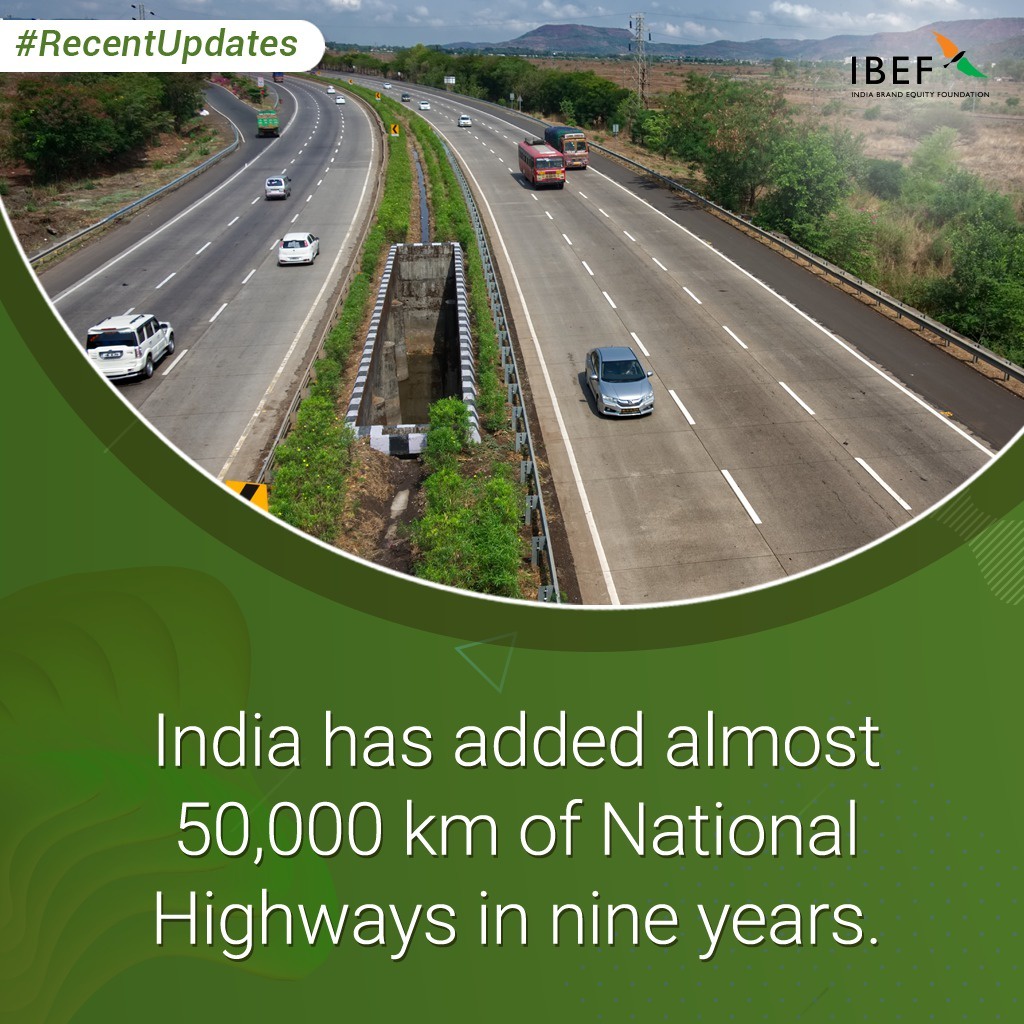India, with its vast and diverse landscape, boasts the second-largest road network in the world. At the heart of this expansive web of connectivity lies the intricate system of national highways, managed and overseen by the Ministry of Road Transport and Highways. In this article, we delve into the crucial role played by India's national highways in contributing to sustainable development across the country.
Connecting the Nation - The Significance of India's National Highways
The India national highways serve as the lifelines of the nation, seamlessly connecting various regions and fostering economic growth. With the Indian highway system evolving into a dynamic network, these arteries play a pivotal role in ensuring accessibility, efficiency, and connectivity across the diverse landscapes of the country.
Fueling Economic Growth Through Efficient Transportation
The efficient movement of goods and people is a cornerstone of economic development. National highways in India, often referred to as the backbone of the transportation system, facilitate the smooth flow of goods, bolstering trade and commerce. As the Indian economy continues to grow, these highways play a vital role in reducing transportation costs, minimizing delays, and enhancing overall efficiency in the supply chain.
Infrastructure Development and the Ministry of Road Transport and Highways
The Ministry of Road Transport and Highways in India has been at the forefront of infrastructure development, steering the course for the expansion and modernization of the national highway network. The ministry's strategic initiatives focus not only on increasing the length of national highways but also on improving the quality of these roads, thereby ensuring sustainability in the long run.
Green India Highways - A Step Towards Environmental Sustainability
The concept of 'Green India Highways' has gained prominence in recent years, marking a significant leap towards environmental sustainability. These initiatives aim to integrate eco-friendly practices in the development and maintenance of highways, minimizing the ecological footprint. Plantation drives along national highways contribute to carbon sequestration, making highways of India not just a means of transportation but also guardians of the environment.
Connectivity Beyond Urban Centers - Empowering Rural India
One of the remarkable aspects of Indian national highways is their ability to connect not just major urban centers but also remote and rural areas. This connectivity is a catalyst for rural development, opening doors for opportunities in education, healthcare, and employment. As highways crisscross the nation, they serve as conduits for progress, ensuring that the benefits of development reach every corner of the country.
Public-Private Partnerships - Driving Innovation in Infrastructure
To meet the growing demands of a rapidly developing nation, the Indian government has embraced public-private partnerships (PPPs) in the development and maintenance of national highways. This innovative approach not only attracts private investments but also brings in advanced technologies and expertise, fostering a culture of continuous improvement in the highway infrastructure.
Technology Integration - Enhancing Safety and Efficiency
In the realm of transportation, technology plays a pivotal role in ensuring safety and efficiency. The integration of smart technologies in the management of national highways has transformed the way road transport in India operates. Advanced traffic management systems, electronic toll collection, and real-time monitoring contribute to smoother traffic flow, reducing travel time and fuel consumption.
Challenges and Solutions - Navigating the Road Ahead
While the progress made in the development of national highways is commendable, challenges persist. Congestion, maintenance issues, and the environmental impact of road construction are areas that demand attention. The Ministry of Road Transport and Highways is actively addressing these challenges through innovative solutions, including the adoption of sustainable construction practices, promoting alternative fuels, and exploring ways to alleviate congestion through intelligent transportation systems.
A Glimpse into the Future - Sustainable Development Goals
As the country continues on its trajectory of growth and development, the national highways in India will play a pivotal role in achieving sustainable development goals. These goals encompass economic growth, social inclusivity, and environmental sustainability. The integration of sustainable practices in the planning, construction, and maintenance of highways aligns with India's commitment to building a future that balances progress with environmental responsibility.
Conclusion - Navigating Towards a Sustainable Future
The India national highways are not just a network of roads; they represent the veins that infuse life into the nation's economic and social landscape. The concerted efforts of the Ministry of Road Transport and Highways, coupled with innovative approaches such as Green Highways and technology integration, are steering India towards a future where development is not just rapid but sustainable. With a focus on inclusivity, efficiency, and environmental responsibility, these Indian highways are paving the way for a brighter and more sustainable future for generations to come.


No comments yet